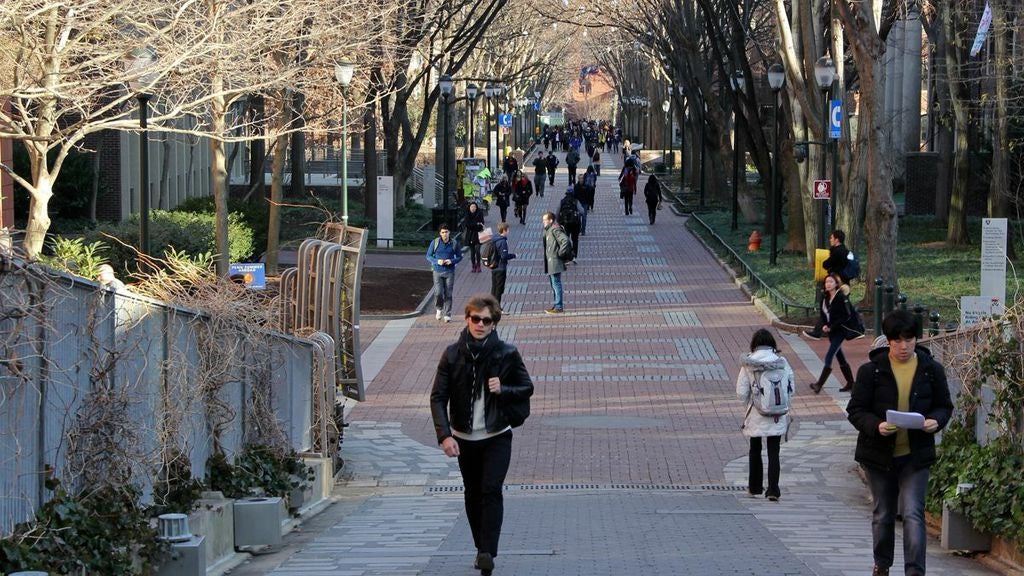A digital reboot of humanities at U of Penn

The University of Pennsylvania campus. (NewsWorks file)
The University of Pennsylvania is rebooting one of its most tradition-bound departments.
The recently announced Price Lab for the Digital Humanities will give students in fields such as literature, languages, music and art history access to dedicated hardware and software, as well as support from technology experts.
In practice, this could mean new archeological research using high-end mapping software, or English majors using statistical analysis to spot trends across tens of thousands of scanned 19th century texts.
Not all will be new for students accustomed to spending long hours in back corners of the library, however.
“We still want people to go thumb through things in the stacks, and we will always have the model of the individual scholar practicing his or her art on their own,” said Jeffrey Kallberg, Associate Dean for Arts and Letters. “This is really kind of a supplement to that. It allows a new set of tools, which in turn open up new sets of questions.”
Kallberg adds that more digitally-focused projects will likely lead to more collaboration, something of a rarity in the discipline.
“It involves teams of scholars working on larger projects, in a way that is very familiar to people in the natural sciences who work in laboratories, but which is still rather new to humanists who traditionally work individually in the library and archives.”
The school will renovate existing space on Penn’s campus, and bring on staff in the coming months.
Kallberg says students in the humanities will benefit from more tech exposure, especially after graduation.
“The kinds of instruction we are putting into place — a ‘Coding For Humanists’ course — will help break down some of the technological divide that can make it seem to students as if they are going to have a harder go out there competing for jobs with their fellow students who may be studying business or finance or something like that.
“The tech divide is going to be broken down by this, and I think that is a terrific thing.”
The initiative is being funded in part by alumnus Michael J. Price, who studied economics, as well as a grant from the Mellon Foundation.
WHYY is your source for fact-based, in-depth journalism and information. As a nonprofit organization, we rely on financial support from readers like you. Please give today.




